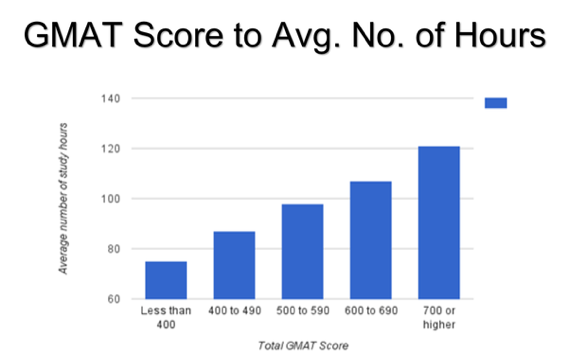Michael, Rahul, and Anna – Three people in three different cities took the GMAT on a particular day. All three of them got different scores. While Anna was elated to score 760, Michael and Rahul were disappointed with their scores of 600 and 650 respectively. They’re both considering retaking the GMAT. While Rahul is pondering on when to retake the GMAT, Michael is wondering about many more questions – Is it worth retaking the GMAT? Why should I even retake the GMAT? What is the scope of improvement for GMAT retake?

A low GMAT score can dishearten anyone who wants to ace the GMAT on the first attempt. This can lead you to worry about a lot of things just like Michael and Rahul. We know many of you are in this situation right now. However, there is a silver lining to all this misery you might be feeling. What this silver lining is, we’ll explain in this article by answering some fundamental questions:
- Retaking the GMAT – Is it worth it?
- Who should retake the GMAT?
- Why should you retake the GMAT?
- When should you retake the GMAT?
- How much time is needed to prepare?
- What should be your retake strategy?
So, let’s dive straight into exploring the answers on retaking the GMAT.
Should I retake the GMAT – Is it worth it?
Firstly, let us make it clear. it is absolutely possible to retake the GMAT. You can retake the GMAT up to 5 times in a calendar year and up to 8 times in a lifetime. However, you must wait for 16 days before retaking the GMAT. But, is it worth it? Let’s Prawee answer your question.
Taking the GMAT a second or third time is a lot of hard work. But if you are taking it for the fourth time or fifth time, your biggest task is to ward off the guilt of past failures and fear of future failure – apart from preparing well for the GMAT. So obviously, questions about the worth of retaking the GMAT will enter your mind.

Prawee, who scored 740 on her fifth attempt is a stellar example of perseverance and faith in oneself. Despite being stuck in the score range of 650 and 680 since her second attempt, she believed, “I am one of those people who will not settle for less if I believe I can do better.”
And what was the result? She got admits to 4 business schools including Kellogg and received got scholarships worth $180,000 cumulatively.
Why was she able to do it? Because she really wanted to get into a top business school, and she knew getting a good GMAT score is the starting point.
Therefore, if you want an admit to your dream business school, retaking the GMAT is worth every second of your time.
Are you planning to enroll in a US business school? Let us help you conquer the first step of the process i.e., taking the GMAT. Take a free GMAT mock to understand your baseline score and start your GMAT prep with our free trial. We are the most reviewed online GMAT Prep company with 2600+ reviews on GMATClub.
Admission committees appreciate such a resolute, unswerving attitude in the applicants. Therefore, taking the GMAT multiple times in order to improve your score (if you haven’t achieved a great score on the first attempt), is an indication that you aren’t one to give up easy! Learn more ways to impress an Admissions committee in this article.
Read this article to learn the 7 step process to score 700+ on the GMAT
Who should retake the GMAT?

You should retake the GMAT if you answer “Yes” to any of the situations below:
- You seriously intend to improve your GMAT score
- There is a good scope of improvement in your GMAT score
- The business school has asked you to retake the GMAT
1. You seriously intend to improve your GMAT score
You may feel that you didn’t give your best while preparing or taking the GMAT the first time. And you are determined to improve your score this time. If this is the case, you should retake the GMAT. Because if you are not willing to put in the work required, then retaking would only be a financial burden of $275 ( in case you opt for test centre exam ) and $300 for online exam.
2. There is a scope of improvement
Even though everything might have gone as planned in the first attempt, there may be a chance that you feel that there’s scope for improvement and you can do better. If that’s the case, why not take your chances? After all, a better score only further improves your chances of admission as well as scholarships!
Furthermore, here are some stats based on the data provided by the GMAC, to help you get an insight into the average score improvement in GMAT retakes:
(a) GMAT score below 600 – According to the ‘Examinees retaking the GMAT’ report by GMAC, people scoring 600 or below on the GMAT have the highest scope of improvement. That is because of the fact that initial improvement is easier to achieve. For example, Time taken to improve from 550 to 650 would NOT be the same as taken from 650 to 750. Because to reach a score of 700 and above, you need to learn advanced skills as the difficulty level of questions is increased.
So, if your score is below 600, you should consider retaking the GMAT.
(b) GMAT score between 600 and 700 – Let’s now consider the data for this range. Take a look at the below table:
| Score Improvement | Percentage of people |
| 10-20 | 13% |
| 30-40 | 15% |
| 50-60 | 15% |
| 70-80 | 15% |
| 90-100 | 11% |
You can see that 70% of the students have improved their GMAT scores on their retakes. Moreover, 41% have improved by 50 points or more. So, there is a high probability that you may improve your score by 50+ points on your GMAT retake. Even a 100-point increase is possible.
There is a high probability of improving your GMAT score by more than 50 points if your current score is between 600 and 700.
(c) GMAT score above 700 – The scope of improvement is less as compared to the above categories. A GMAT score of 700 corresponds to 88 percentile. The higher your score, the more difficult it becomes to improve.
Take a look at the statistics on the scope of improvement for this category:
| Score Improvement | Percentage of people |
| 10-20 | 25% |
| 30-40 | 20% |
| 50-60 | 10% |
| 70-80 | 5% |
| 90-100 | 1% |
Overall, 61% of people have improved their score on their GMAT retake. In fact, a majority (55%) of people have improved by up to 60 points. However, before your GMAT retake, you should keep in mind that this decision should be based on the overall quality of your MBA Application.
If you feel that your GMAT score is a competitive one for your target business school and your profile, then start focusing on other aspects of your application rather than on GMAT retake.
If you wish to understand what is an ideal GMAT score for you according to your profile, read this article.
3. The Business School has asked you to retake the GMAT
Sometimes the admissions committee of a business school may ask you to retake the GMAT. This happens when the school feels you are a good fit for the MBA program, but you lack an edge because of an average GMAT score. So, the adcom gives you another chance to impress them.
In this case, you MUST retake the GMAT with just one purpose: to improve your score.
Why should you retake the GMAT?
To conclude from above, you should retake the GMAT, if:
- You weren’t able to give your best the first time
- Your score is not a competitive score according to your profile and your target business schools
- Your score is not consistent with your ability or mock test scores
- You didn’t finish at least one of the sections
When should you retake the GMAT?
GMAC stipulates that you have to wait 16 calendar days before retaking the GMAT. Moreover, you cannot take the GMAT more than 5 times in a year and more than 8 times in a lifetime.
So, in principle, if you think you will be prepared to retake the GMAT on the 17th day after your previous attempt, then go for it.
Although, let’s first look at how much time on average retakers take before appearing for their next attempt.

Take a look at the table below:
| Days between retake | Percentage |
| 1-30 | 20.40% |
| 31-60 | 27.40% |
| 61-90 | 13.60% |
| 91-120 | 12.30% |
| 121-150 | 6.30% |
| 151-180 | 5% |
| 180 or more | 15% |
As can be seen, 50% to 60% of the people retake the GMAT within 2-3 months of their last attempt. This is understandable, as preparation for the GMAT can well be done within 1-2 months.
Click here to access a One Month Study Plan for GMAT Preparation!
If you’re wondering as to how to choose a suitable GMAT retake date, you must know 3 things:
- The preparation time required
- Which Application Round you wish to apply in?
- When is the deadline for that Application Round?
Let’s talk about how much time you need to prepare for your GMAT retake.
1. How much time is needed to prepare for GMAT retake?

The time required for a GMAT retake would depend on your current score and your target score. GMAT is a very structured test with a well-defined curriculum. Hence, test takers can easily prepare for the GMAT with 120 to 200 hours, depending upon the starting score. As a rule of thumb – allocate 10 hours for every 10 points of improvement that you seek.
The above chart has been compiled by GMAC. You can clearly see that to score 700 or higher, test takers study for 120 hours on average.
For example: if your last GMAT score was 680 and your target score is 760, then for 80-point score improvement, you would require 80 to 100 study hours.
So, if you are planning to retake the GMAT, first compute the number of study hours and the number of days it would take you to complete those study hours. Once you have calculated the number of days, only then decide on a GMAT retake test date.
We’ve covered the GMAT Preparation Time in further detail in our article on “How long does it take to prepare for the GMAT?” Read more..
2. MBA Application deadline approaching
If the application deadline for your target business school is within 2 months, then you should not delay retaking the GMAT. Why?
Because you need time to prepare for other components of your MBA application. If you want to seriously improve your score and have a significant scope of improvement, then retake the GMAT.
For example: If you have scored a 740 and the application deadline is fast approaching, then there is no need to retake the GMAT. Instead, work on other portions of your application to impress the Admissions Committee.

How to prepare for your GMAT retake?
We have written a detailed article on this topic. In the article, we have outlined a 5-step strategy for a successful GMAT retake. Take a look at this article to understand this strategy with a real-life example of a 740 scorer, who followed this strategy.
Takeaways – Should you retake the GMAT?
According to GMAC, 43% of test-takers send their scores to Business Schools. It means that a significant pool of aspirants planned to retake the GMAT at some point in time. Therefore, even if you are not satisfied with your GMAT score, don’t stress. Prepare well for the GMAT and retake it. The only things you need to keep in mind are that you:
- Seriously prepare to improve your score
- Understand the scope of improvement
- Know the time required to prepare for the GMAT retake
Once you have the above information, you can start preparing for your GMAT retake and eventually register for the GMAT. If you wish to prepare well for your GMAT retake, then learn from the best. We are the most reviewed GMAT prep company on gmatclub with more than 2600 reviews.
Why don’t you take a free trial and judge for yourself?















